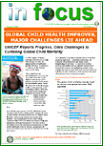|
CECHE SUPPORTS CSPI's Save Harry Campaign

Save Harry from Coca-Cola!
CECHE joined The Center for Science in the Public Interest (CSPI), the leading nutrition-advocacy organization in North America, in a CSPI-led campaign to save "Harry Potter"-the iconoclastic figure created by children's book author J. K. Rowling and adored by children around the world. Visit www.SaveHarry.com for details of the campaign and the organizations behind it. On November 16, 2001, Warner Brothers released in the United States, the United Kingdom and Canada the first movie based on the "Harry Potter" books. Coca-Cola paid Warner Brothers an estimated $150 million for exclusive global marketing rights for the first film, "Harry Potter and the Sorcerer's Stone." Author J. K. Rowling reportedly received $15 million as part of the deal. The deal resulted in the plastering of familiar Potter icons like owls, castles, and even Harry himself on Coke cans, packaging, and game cards. The promotion, called Live The Magic, also used contests, games, and a web site to entice kids to drink more soft drinks. The Center for Science in the Public Interest spearheaded a global campaign to urge the author of "Harry Potter" to end the agreement with Coca-Cola Co., Warner Brothers (part of AOL Time Warner) and herself... and to donate the royalties from the deal to fund nutrition campaigns. The goal of the campaign was to promote better nutrition among youth while countering junk-food advertising. As part of its campaign, CSPI led 40 co-sponsoring organizations in a dozen countries in a feisty campaign to call attention to Coca-Cola's sole world-wide marketing rights to the film. Those countries included both developed (e.g.: Canada, France, Japan and the UK) and developing (Armenia, Benin, Croatia, Greece, Hungary, India, Mexico, Pakistan and Poland) countries. Soft Drinks Contribute To America's Obesity Epidemic Over 40 organizations in ten countries are supporting the campaign, the latest in the efforts of scientists, policy advocates, parents and teachers worldwide to protect children from aggressive advertising, especially of soft drinks. The typical 12-ounce (360 ml) soft drink contains 150 calories and 10 teaspoons (40 grams) of refined sugars. Americans gulp down more soda pop than anyone else. Consumption has doubled over the past 30 years, with companies now producing an average of almost 600 cans per year for every man, woman and child! Increasing scientific evidence shows that soft drinks have helped fuel the obesity epidemic (twice as many American youths are overweight or obese now than 20 years ago). In many other countries, too, people are consuming more soft drinks, and obesity is a growing problem. Obesity causes major social and psychological problems. It also increases the risks of such deadly diseases as diabetes, high blood pressure, stroke, and heart disease. Drinking a lot of soda pop is likely to replace more healthful beverages - such as water, fruit juice, and low-fat milk - and thereby increase the risks of osteoporosis and cancer. Finally, sugary soft drinks promote tooth decay. CSPI also launched a website - www.saveharry.com - inviting children and parents to e-mail J.K. Rowling, author of the Harry Potter books, to end the deal with Coca-Cola and to donate the royalties she already had received to fund nutrition campaigns. The website received more than two million visitors, portions of which were translated into French, Japanese, Magyarul and Spanish. More than 23,000 individuals used the CSPI site to send emails to Potter author J.K. Rowling, AOL-Time Warner, and Coca-Cola. The messages appealed to Ms. Rowling to stop Harry from being subverted to a mere poster boy for Coca-Cola and urged her to consider the health of the world's youth. The website generated a tremendous amount of media publicity - especially in the United States and the United Kingdom - despite 9/11, anthrax and the war. Coverage appeared in the New York Times, Los Angeles Times, USA Today, "Good Morning America," and dozens of other places (see attached sampling of articles). Television, The site has now been updated to coincide with the recent release of "Harry Potter and the Chamber of Secrets" - the sequel - which got much less publicity. Want to join in a letter-writing campaign to author JK Rowling to save "Harry Potter"? Visit http://www.saveharry.com/index.html  Impact Of Campaign CSPI also led a demonstration at the Washington, D.C. premier of the film. The BBC published a lesson plan based on the Save Harry campaign for schools to teach children about brand awareness and advertising. The Bravo network in Canada developed a curriculum about the "Harry Potter" phenomenon, from literary themes to commercialization. It examined many of the issues that kept Harry in the news, from the books' runaway popularity to accusations of witchcraft. One section focused on the idea of selling Harry to the highest bidder and asked kids to consider why someone would want Harry to advertise their product. While the CSPI coalition's efforts did not ultimately kill the marketing arrangement made between AOL-Time Warner and Coca-Cola, it effectively publicized well-founded concerns about the health impact of the soft drinks that were being marketed through the films. The campaign also brought ancillary benefits to CSPI's broader agenda by strengthening our Internet advocacy skills and assisting us greatly in building what is now a very well populated e-mail activist-alert listserv. This list is now being used on other CSPI health campaigns. The Center for Science in the Public Interest is spearheading a global campaign to urge the author of "Harry Potter" to end the agreement with Coca-Cola Co., Warner Brothers (part of AOL Time Warner) and herself... and to donate the royalties from the deal to fund nutrition campaigns. We also want her to stop all future sponsorship by Coca-Cola. Over 30 organizations in ten countries are supporting the campaign, the latest in the efforts of scientists, policy advocates, parents and teachers worldwide to protect children from aggressive advertising, especially of soft drinks. |
|
|||||||||||
Questions? Comments? Concerns? E-mail CECHE at CECHE@comcast.net Go back to the CECHE home page Go back to the CECHE home page
|


